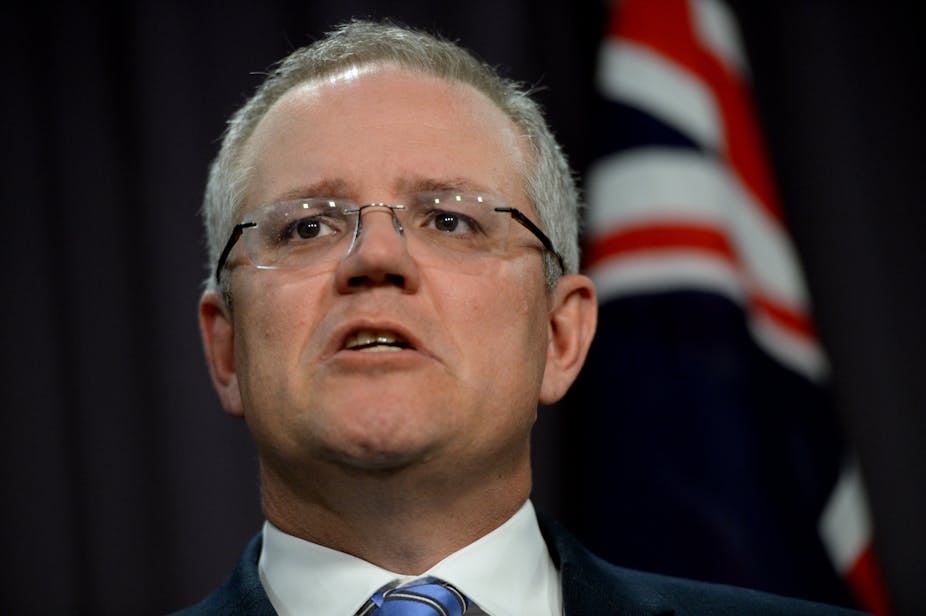Treasurer Scott Morrison will warn that Australia would suffer if it turned against foreign investment, trade and immigration, in a speech also acknowledging the need to answer the “genuine anxiety” in the community about these issues.
Addressing the Lowy Institute on Friday on “Keeping the Door Open”, Morrison will say that bans in these areas “would cut Australians off from the primary sources of their prosperity for over two centuries”.
He will admit that some people “are asking questions about why they feel they have not benefited from Australia’s growth as much as they expected. They are asking practical questions like, why are my wages not increasing like they were before? Why can’t I get the extra hours I was getting before?
"These sentiments are real and they are looking for something to explain it.”
With polling showing 49% of Australians are in favour of stopping Muslim immigration, and similar opposition to foreign investment and free-trade agreements, Morrison will argue that although it can be politically popular to endorse such policy sentiments “there is great danger in following this path”.
Australia cannot afford to take an approach “that suggests we can pull the doona over our head and insulate ourselves from the economic changes that are occurring globally and domestically.
"Foreign investment, trade and an immigration program that is focused on bringing people to Australia who make a contribution rather than take one, creates jobs, boosts wages, drives growth, increases our living standards and always has.”
Morrison will say that the way to tackle concerns about immigration “is not to be dismissive, but to engage on those concerns and have policies that effectively address them”, as the Coalition has done under John Howard, Tony Abbott and Malcolm Turnbull.
He will characterise Australia’s immigration program as setting itself apart from other countries by focusing on attracting people and families wanting and able to make a contribution. “Our immigration policies have always had, when they have been most successful, a strong economic focus.”
“The Turnbull government is committed to ensuring that we keep this strong economic focus,” an approach that also results in greater social cohesion.
“Seeking the reinforcing outcomes of economic contribution and social cohesion provides the foundation for community confidence in our immigration program, which is necessary for its ongoing support”.
On foreign investment, Morrison will emphasise it is important to strike a balance between maintaining an “attractive and welcoming environment” for overseas capital and maintaining community confidence in the foreign investment regime.
“As I found with immigration, Australians must have confidence that there are clear rules that protect the national interest and that these rules are being enforced. That is why our government has acted to strengthen the controls we place on foreign investment and is following through with improved enforcements to pursue those who break the rules.”
Although the vast majority of foreign investment proposals are accepted, this is not without proper scrutiny, he will say.
“I will not approve foreign investment proposals if I come to a considered view that they are contrary to the national interest … If I said yes to everything the Australian community would be rightly concerned that we weren’t taking this issue seriously.”
But the government wants to ensure the system is efficient, and recently invited feedback from the users of the Foreign Investment Review Board (FIRB). “I’ve asked Treasury to work with the FIRB to see if we can put something in place to ensure that we have a mechanism for users to provide feedback on a regular basis if they want.”
Morrison will say that “in a world where many economies are contemplating pulling the drawbridge up on trade, it is in our national interest to stay the course and argue the case for continued trade liberalisation to keep markets open. We can’t afford not to trade”.
He will note some early positive results from the Australia-China free-trade agreement. The first six months of this year has seen a doubling in the value of Chinese imports of fresh mangoes, cherries, table grapes and oranges from Australia.

